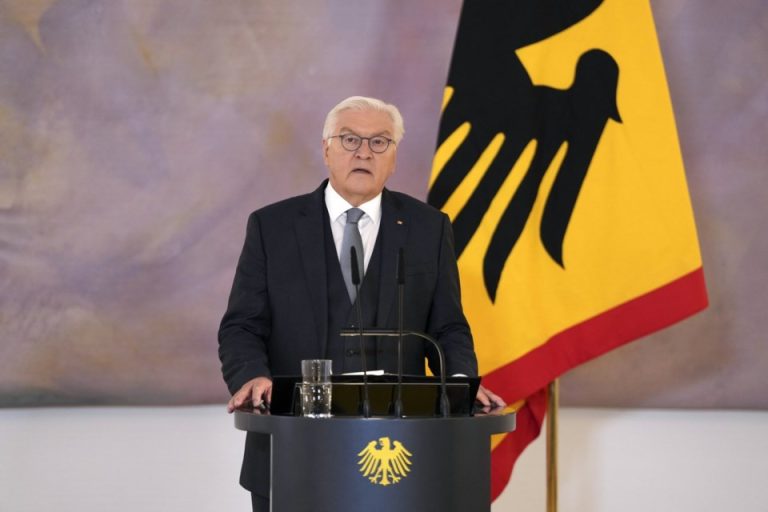On Friday, President Frank-Walter Steinmeier dissolved Germany’s lower house of parliament to pave the way for snap elections on Feb. 23 after Chancellor Olaf Scholz’s three-way coalition collapsed.
“Especially in difficult times like now, stability requires a government capable of acting and reliable majorities in parliament,” Steinmeier said in Berlin, explaining that this is why early elections were the right way forward for Germany.
Steinmeier added in a speech that politics must again focus on problem-solving after the elections.
The president, whose role has been largely ceremonial in the post-war era, called for the election campaign to be conducted fairly and transparently. He emphasized that external influence poses a threat to democracy, whether it is covert, as seen recently in the Romanian elections, or open and blatant, as is currently happening intensively on the social media platform X.
Scholz, a Social Democrat, will lead a caretaker government until a new one is formed after losing a confidence vote in parliament earlier this month. The vote followed the departure of Finance Minister Christian Lindner’s Free Democrats, which left Scholz’s unwieldy governing coalition without a legislative majority.
The collapse of the coalition marked a turning point in German politics, triggering the beginning of the election campaign. Conservative challenger Friedrich Merz, who surveys suggest is likely to replace Scholz, quickly seized the opportunity. He criticized the incumbent government for imposing excessive regulations, claiming that these measures had stifled economic growth.
Merz’s comments reflected a growing sentiment among critics that the government’s policies had created barriers to economic progress. He argued that under Scholz’s leadership, the country had struggled with bureaucracy and overregulation, ultimately harming business and innovation. Merz promised to bring about a more business-friendly approach if he were to assume leadership.
As election campaigning intensified, the focus shifted to how the next government would address the nation’s economic challenges. Merz positioned himself as the candidate who could break through the regulatory barriers and foster an environment conducive to growth. His sharp criticism of Scholz’s policies resonated with many who believed that Germany’s economic performance had stagnated under the current administration.
In the meantime, Scholz and his caretaker government will remain in power until a new coalition is formed, though their influence may be limited during the election period. The upcoming elections will determine whether Merz’s vision for Germany’s future will prevail or if Scholz’s party can regain the public’s trust to continue leading the country.
The conservatives currently hold a comfortable lead of more than 10 points over the Social Democrats (SPD) in most polls. The far-right Alternative for Germany (AfD) is slightly ahead of the SPD, while the Greens, a coalition partner of the SPD, are in fourth place.
Mainstream parties have firmly refused to govern alongside the AfD, which has led to complications in the parliamentary math. The rise of the AfD makes it more likely that any future government will consist of shaky coalitions, as no single party appears likely to achieve an outright majority on its own.
The presence of the AfD in the political landscape forces the mainstream parties to consider less stable alliances, raising concerns about the effectiveness of governance. With such a fragmented political environment, forming a cohesive government could prove difficult, even after the upcoming elections.
The SPD, while trailing behind the conservatives, faces the additional challenge of competing with both the AfD and the Greens for voter support. The complex dynamics between these parties create an unpredictable electoral outcome, leaving the future composition of Germany’s government uncertain.
As the election approaches, both major and minor parties will continue to navigate the tricky terrain shaped by the growing influence of the AfD. This political fragmentation promises to make the process of forming a new government more challenging, possibly resulting in a series of unstable coalitions rather than a unified administration.

